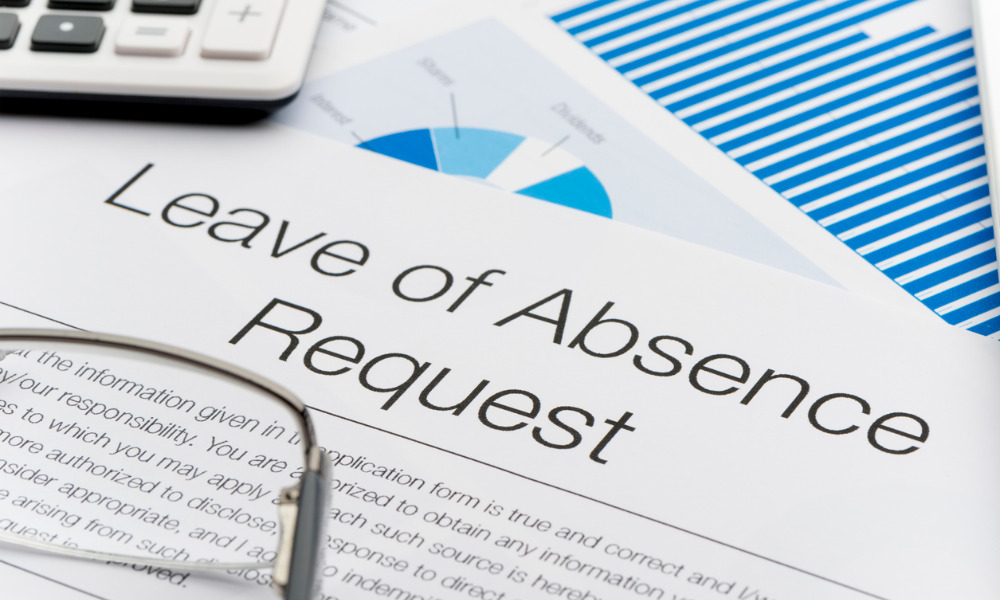
HRD breaks down why the phenomenon is worse than it seems

While employees in Singapore typically claim annual leaves for long holidays, the inability to travel in 2020 has led to an excess in unused leaves.
Employers have offered staff several options, including encashment and carrying forward remaining leave days to 2021.
According to the Ministry of Manpower (MOM), employees covered under the Employment Act who earn up $4,500 a month are entitled to bring over any unused leaves to the next 12 months.
Employees not under the Act, however, are not guaranteed the benefit, though it’s up to the employer and what’s been agreed upon in the contract.
MOM stated that employers can, however, forfeit workers’ leave entitlements if:
Read more: Excess unused leave? Employer makes one-off policy change
Hoarding leaves – how unhealthy is it?
Whichever policy you decide to adopt this year, leaders should note that an excess of annual leaves going into 2021 suggests more than just a sign of our times. It means that employees have been working round the clock and may be struggling with presenteeism.
The phenomenon is not a new one – just a more debilitating one in our current context. In fact, Singapore and other Asian nations like Hong Kong, India and South Korea were already labelled most vacation-deprived in the world last year.
And with lockdowns and remote working arrangements being the norm, employees may be dealing with more than just the ‘holiday blues’. Some may be struggling to switch off, while others, working through sick days, all the while exacerbating their fragile state of well-being.
What’s worse, some may have felt the added pressure to work harder and for longer to prove their worth in a recession.
Forced to work from home through a crisis, a LinkedIn study found that 86% of employees felt pressured to overperform. As a result, these individuals reported suffering from:
And if anything’s been proven this year, it’s how personal well-being impacts work performance, so everything can lead to a worrying spiral.
Read more: Is remote work creating a culture of presenteeism?
Meanwhile, a study by Expedia revealed that employees who took a vacation from work felt:
Dr Tan Ern Ser, Associate Professor, Department of Sociology at the National University of Singapore (NUS) paralleled the findings, adding that ‘rest time’ had a great impact on both an individual’s work and home life.
Read more: Is presenteeism worse than absenteeism?
Taking leave just to stay home
While we can all agree with those findings, without the ability to travel or even to go out the house this year, it may be hard to overcome the idea of taking time off from work just to stay home.
Which is why there needs to be a mindset and culture shift around taking time off – that taking a break from work, even for just a few days in a year, is necessary rest time that can help avoid burnout.
Above all, leaders should encourage staff to prioritise well-being, making clear that those days spent being on leave are meant for resting, even if you're just at home. Better yet, leaders should do the same and role model the behaviour.
Read more: Why leaders should take a 'mental health day'
Ang Sze Pheng, HR Director, APJ at World Wife Technology (WWT), a technology solution provider, told HRD that are plenty of ways that HR leaders can encourage staff to take a break from work.
“Engage in good, transparent communication with employees about the benefits of paid time off," Ang said. "And that the adverse effects of not taking enough breaks can result in such as burnout, low job satisfaction and anxiety."
You can also highlight the benefits of taking time off to take a break and ‘reset’.
Of course, one the most effective ways to encourage employees to practise such healthy habits is to walk the talk.
“When supervisors and managers set a good example, employees are more likely to follow,” she said. “When employees see that their leaders are taking vacation or paid time off, they are more likely to become more comfortable with the idea of paid time off and follow suit.”
As for individuals who have always struggled with presenteeism, before or during COVID, it all boils down to a team effort.
“Work with your teams internally to evaluate workloads and redistribute responsibilities so that employees feel less guilty about taking paid time off,” she said.